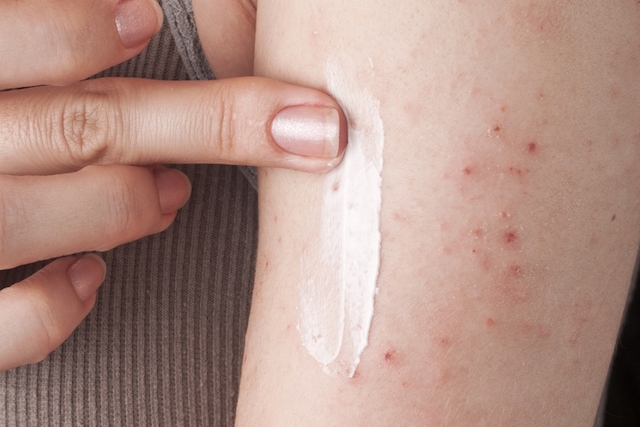- Main symptoms
- Who is at higher risk of mucositis
- Main degrees of mucositis
- How the treatment is done
Mucositis is the inflammation of the gastrointestinal mucous membranes that is usually associated with treatment with chemotherapy or radiation, being one of the most common side effects in patients undergoing cancer treatment.
Since mucous membranes line the entire digestive tract from the mouth to the anus, symptoms may vary according to the most affected site, but the most common is that mucositis appears in the mouth, called oral mucositis, and causes discomfort such as mouth sores, swollen gums and a lot of pain when eating, for example.
Depending on the degree of mucositis, treatment may involve making small changes in the consistency of food and using oral anesthetic gels, until making adjustments in the treatment of cancer and, in the most severe cases, admission to the hospital for administration of medications and feeding into the vein, according to oncologist guidance.
Main symptoms
Mucositis symptoms vary according to the location of the affected gastrointestinal tract, the person's general health and the degree of mucositis. However, the most common symptoms include:
- Swelling and redness of the gums and lining of the mouth; Pain or burning sensation in the mouth and throat; Difficulty swallowing, speaking or chewing; Presence of sores and blood in the mouth; Excessive saliva in the mouth.
These symptoms usually appear 5 to 10 days after the start of the chemotherapy and / or radiation therapy cycle, but they can persist for up to 2 months, due to the decrease in the amount of white blood cells.
In addition, if the mucositis affects the intestine, other signs and symptoms may appear, such as abdominal pain, diarrhea, blood in the stool and pain when evacuating, for example.
In the most severe cases, mucositis can also lead to the appearance of a thick white layer, which occurs when fungi develop in excess in the mouth.
Who is at higher risk of mucositis
Mucositis is very common in people who are undergoing cancer treatment with chemotherapy and / or radiation therapy, but that does not mean that all people undergoing this type of treatment will develop mucositis. Some factors that seem to increase the risk of developing this side effect include having poor oral hygiene, being a smoker, drinking little water during the day, being underweight or having a chronic problem, such as kidney disease, diabetes or HIV infection.
Main degrees of mucositis
According to the WHO, mucositis can be divided into 5 degrees:
- Grade 0: there are no changes in the mucosa; Grade 1: it is possible to observe redness and swelling of the mucosa; Grade 2: small wounds are present and the person may have difficulty ingesting solids; Grade 3: there are wounds and the person can only drink fluids; Grade 4: oral feeding is not possible, requiring hospitalization.
The identification of the degree of mucositis is done by the doctor and helps to determine the best type of treatment.
How the treatment is done
The treatments used to treat a case of mucositis can vary according to the symptoms and the degree of inflammation and, in general, only serve to relieve the symptoms, so that the person can eat more easily and feel less discomfort during the day.
A measure that is always encouraged, regardless of the severity of mucositis, is the adoption of appropriate oral hygiene practices, which may be just the use, 2 to 3 times a day, of a mouthwash recommended by the doctor, to disinfect the wounds and prevent the development of infections. When this is not possible, a homemade solution may be to rinse your mouth with a mixture of warm water with salt, for example.
In addition, it is important to pay attention to the diet, which should contain foods that are easy to chew and not irritating. Thus, hot, very hard foods such as toasts or peanuts should be avoided; very spicy, like pepper; or that contain some kind of acid, like lemon or orange, for example. A good solution is to make purees of some fruits, for example.
Here are some nutrition tips that can help:
In cases where these measures are not enough, the doctor may also prescribe the intake of painkillers or even the application of some anesthetic gel, which can relieve the pain and allow the person to eat more easily.
In the most severe cases, when mucositis is grade 4, for example, and prevents the person from eating, the doctor can advise the internment, so that the person makes medicines directly in the vein, as well as parenteral nutrition, in which the nutrients are administered directly into the bloodstream. Learn more about how parenteral feeding works.
















